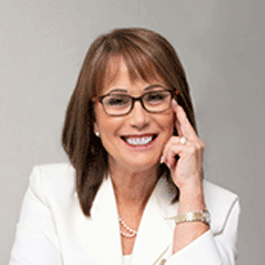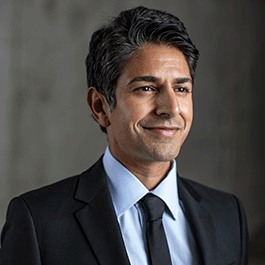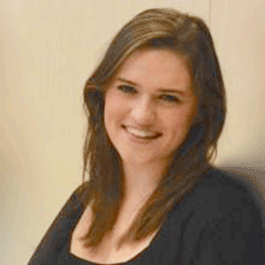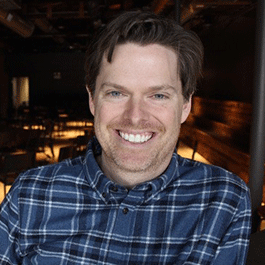New Farley Faculty Share Favorite Innovations of the 21st Century
Farley lecturers reflect on beloved innovations spanning e-readers to medical technology to mental health access
Despite the challenges of our moment, one of the most exciting things about the times we find ourselves in is that innovation continues to happen across industries at a rapid pace.
We asked the newest members of the Farley Center faculty to share some of their favorite innovations of the 21st century. Here’s what they said:
 Linda Brennan
Linda Brennan
I have always been fascinated by how computer technologies enable people to collaborate at different times from different places, so you might think my favorite innovation is smartphones. However, I have a love/hate relationship with mine. I can transcend time and space with other people, but I cannot seem to escape the phone (mine and others).
Therefore, my first prize must go to my Kindle e-reader. I can use it all the time on any of my different devices. I save paper, support authors, patronize the library, and best of all, pack more lightly when I travel. (I think students like having e-book options for my classes, too.)
 Suneel Gupta
Suneel Gupta
Without mental health, we can't have true physical health. That's why some of my favorite innovations of the 21st century have come from democratizing access to mental health support. There's so much more to be done, but services like TalkSpace and Calm have signaled what's possible, and I'm excited for what's ahead.
 Ola Kalinowska
Ola Kalinowska
Artificial intelligence has become somewhat of a buzzword — and not without reason. AI recently solved one of biology’s grandest challenges by predicting the 3D structure of protein molecules with near-perfect accuracy. AI has also shown potential to improve accuracy of early medical diagnoses for consequential but treatable diseases, such as breast cancer, and to make preventative care more personalized and more widely administered.
There have also been many small med-tech innovations that have drastically improved lives of individuals with chronic conditions (for example, glucose monitors for people with diabetes). Other innovations are still in early development and not yet commercial. Just a few weeks ago, spinal cord implants were used to allow paralyzed individuals to take their first steps.
 Anne Libera
Anne Libera
While the speed of technical innovation during the 21st century is mind-boggling, my favorite innovations are the discoveries being made in the field of behavioral science that focus on understanding how and why we behave the way that we do and the simple things that make us better at being human beings.
I particularly enjoy the work of Nick Epley and his collaborators at the University of Chicago on the value of gratitude and simple conversation with others as essential to happiness and well-being, and Alison Woods Brooks's research on how to have more effective conversations (or as the title of the course that she teaches at Harvard describes it, How to Talk Gooder in Business and Life).
 John Stoops
John Stoops
Martin Short is one of my all-time favorite comedic actors. And “Innerpsace” is one of his 80’s classics. In the film, a miniaturized Dennis Quaid is injected into Martin Short’s bloodstream to conduct medical experiments. Who would have thought this 80’s comedy would be so prescient?
One of the most amazing innovations of the 21st century is capsule endoscopy where patients swallow a small pill-sized camera that goes through their digestive system. The camera traverses the gastrointestinal system and doctors monitor its track to identify internal bleeding, cancer, ulcers, and other pathologies — albeit without Dennis Quaid on board.

 Andrew Cittadine
Andrew Cittadine